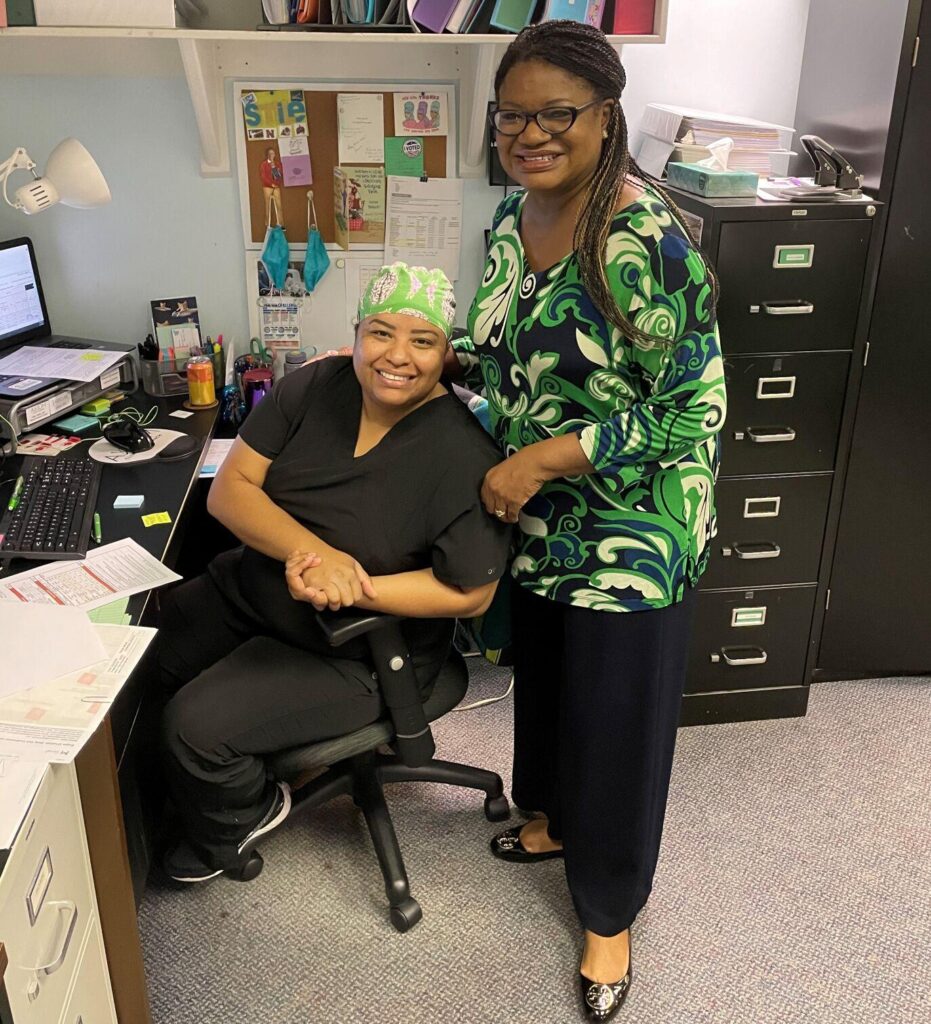GAP President John Dwyer and GAP-Net site, Axiom Clinical Research, were featured in the Florida Courier about the Bio-Hermes study and the importance of Black and African American participation in Alzheimer’s trials.
The effects of Alzheimer’s Disease on the Black families across the U.S. are devastating. If nothing is done to mitigate these effects, according to researchers at Florida International University and UsAgainstAlzheimer’s, by 2030 nearly 40% of all Americans with Alzheimer’s disease will be either Black or Latinx.
Over 580,000 people aged 65 and older are currently living with Alzheimer’s in Florida. Nationally, Black people are two to three times more likely than whites to develop Alzheimer’s in their lifetime.
Yet, despite being at greater risk for the disease, Black Americans are often severely underrepresented in clinical research. According to the National Institute on Aging, Black Americans make up less than 10% of all clinical trial participants in active Alzheimer’s and related dementia research.
Additionally, Black Americans (18.2%) were less likely to receive a timely Alzheimer’s diagnosis when compared to Whites (23.3%) and, according to the Alzheimer’s Association, half of Black Americans (50%) reported they have experienced health care discrimination.
No-cost brain scans
Neurologists in Tampa, in collaboration with the Global Alzheimer’s Platform Foundation (GAP), are working to address these disparities directly.
Axiom Clinical Research of Florida is now enrolling volunteers with and without memory concerns in GAP’s innovative Bio-Hermes Study.
The study seeks to evaluate which blood or digital biomarker tests could best help predict the presence of amyloid plaques in the brain, a hallmark of Alzheimer’s. There are no experimental treatments involved in the Bio-Hermes study.
Volunteers will receive a study related brain scan at no-cost to them and learn more about their brain health.
In addition, GAP’s Bio-Hermes study will remain open until at least 20% of study participants are Black and Latinx, nearly four times the national average in Alzheimer’s research, to help ensure that future Alzheimer’s assessment tools are sensitive and specific to all communities.
“We are committed to recruiting a diverse pool of volunteers for the Bio-Hermes Study in part because it’s a matter of fundamental fairness to make the study available to every community,” said John Dwyer, President of the Global Alzheimer’s Platform Foundation.
“But we also are mindful that members of the Black and Latinx community more frequently are burdened with the disease. We want to ensure the results of the study apply to everyone with Alzheimer’s.”
Alzheimer’s assessment tools
Neurologists leading the Bio-Hermes study will compare the results of blood and digital biomarker tests – including digital, cognitive, retinal, and voice assessments – with the results of brain amyloid PET scans and traditional cognitive tests.
Resulting data will help scientists determine which cost-effective and accessible tests best foretell the hallmarks of Alzheimer’s Disease in all people and help advance us towards a cure.
“The types of assessment tools being evaluated in this study have the potential to transform Alzheimer’s treatment in the future,” said Dr. Susan J. Steen, the principal investigator for Bio-Hermes at Axiom.
“Because they are more accessible than PET scans, they can be widely administered by primary care physicians. This will lead to earlier diagnoses so families can begin planning and patients can consider getting involved in clinical research studies, thus speeding the search for a cure.”
Volunteer details
Axiom welcomes volunteers of all racial and ethnic backgrounds. The site has been leading clinical trials in Tampa for a variety of neurological conditions since 1993.
Axiom’s mission statement is simple: “Clinical research that provides exceptional patient care and efficiently produces high quality, clean, and credible research data.” Additionally, site staff are bilingual.
Volunteers for the Bio-Hermes study must be between 60 and 85 years old and have someone who can participate with them as a study partner.
The study requires two visits with Axiom staff and one visit to a local imaging site over the course of three months, with the potential for a follow-up phone call (if needed). Free transportation will be offered to all study participants.
Those interested in learning more about volunteering in the Bio-Hermes Study and volunteering should call Axiom Clinical Research at 813-353-9613.
